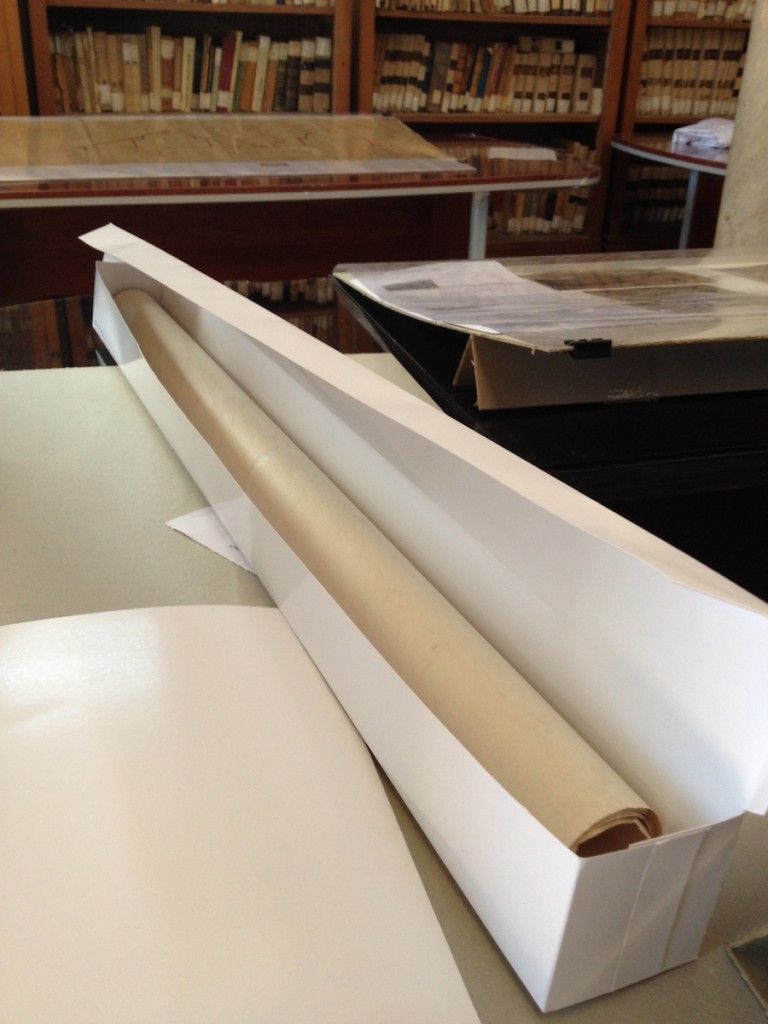By Tom Westcott.

Tripoli, 6 February 2014:
A two-week training programme of conservators has seen some of the country’s ancient documents restored to . . .[restrict]something close to their former glory.
Organised by UNESCO and funded by the Italian government, the programme focused on the conservation of historic documents, maps and photographs. Many of these have been neglected and stored in unsuitable environments, meaning that a significant number is now in a terrible condition.
The training of 40 employees from the Department of Antiquities and the Centre for Historic Studies and National Archives in Tripoli, also looked at ways to manage historic collections. It introduced principles for the proper storage, handling and maintenance of collections and for making them available to researchers and the general public.
Conducted mainly at the capital’s historic Red Castle, which also houses the museum, the course combined theory and practice, with plenty of hands-on experience of actually preserving documents and learning how these are best stored.
“They learned how to use very cheap and basic materials, such as thin cardboard, to prevent documents from becoming further damaged,” Head of the UNESCO Libya office, Lodovico Folin-Calabi told the Libya Herald. “This course was part of a larger training programme which will cover a whole range of conservation needs and the management of historic buildings and collections.”
UNESCO hoped to make this type of training more sustainable, Folin-Calabi said, and to find ways to preserve and upgrade the country’s important buildings and documents. He said UNESCO would like to see a small conservation laboratory set up in Libya, where documents could be preserved on a more regular basis.
“My message to the Libyan government is that you have an extraordinary team of committed professionals. Please use these people to help preserve Libya’s beautiful heritage,” Folin-Calabi said, speaking at a ceremony held at the end of the training.
Director of the Italian Institute of Culture in Tripoli, Rubens Piovano, said that the Italian government had long supported UNESCO in its mission to preserve culture. “We are proud that those selected to train the Libyan employees of the Department of Antiquities are two excellent Italian experts in the field of the conservation of the cultural heritage.”
Piovano also announced that the Italian Cultural Institute would soon be presenting a book of proposals and suggestions from the University of Urbino about the restoration of the Red Castle itself. He said rising damp from the basement was spreading up the main walls, putting not only the archives but also the building itself at risk. “It does not make sense to restore the content if you don’t restore the container,” Piovano said.
As well as the 40 trainees, a number of members of the Department of antiquities attended the closing ceremony. “We see our heritage vanishing between our hands and this heritage should be preserved for all of humanity,” Head of the Archaeological Research section of the Department of Archaeology, Mustafa Turjman told the Libya Herald. “It is one of the bounties of foreign countries to help us and teach us ways to preserve our heritage for the benefit of future generations.”









